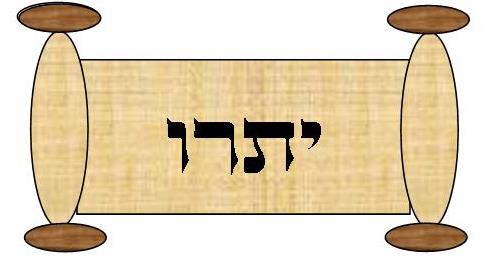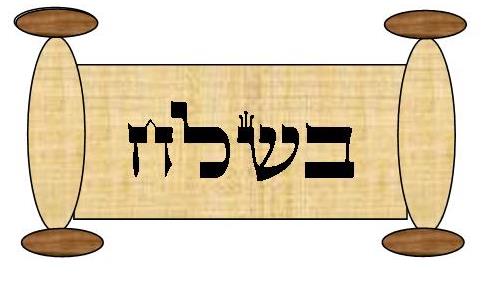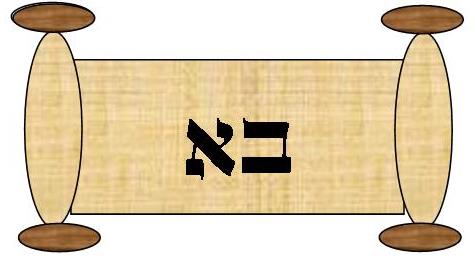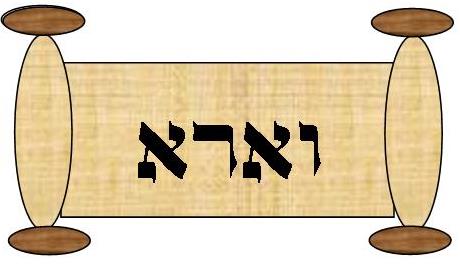
Jan 25, 2019 | Torat Devorah
The character of Yitro is legendary within Jewish tradition as the non-Jew who joined the Jewish people. However, there is great deal of ambiguity within the Torah surrounding Yitro and his connection to Am Yisrael. In a number of areas the Torah casts mystery upon Yitro, leaving us wondering as to the meaning of Yitro’s enigma.
To begin with, Yitro seems to have at least four different names! The most common name — Yitro — appears throughout chapter 18 of Shemot, the chapter in which Yitro visits Moshe and offers advice regarding the people’s judiciary structure. In this chapter the man is introduces to us as “Yitro kohen Midyan the father-in-law of Moshe” (18:1), and thereafter is repeatedly referred to as Moshe’s father-in-law. From a verse in the book of Shoftim (Judges) we read of the emigration of the descendents of “Keni, the father-in-law of Moshe” (Shoftim 1:16) – a second name for Yitro. Another verse in the book of Shoftim speaking of a descendent of “Chovav, the father-in-law of Moshe” (Shoftim 4:11) tells us of yet another one of Yitro’s names. Our first encounter with Yitro, in which Moshe meets Yitro’s daughters at a Midyanite well and then subsequently marries Tziporah, seems to provide yet a fourth name: when the daughters return from the well, they speak to “Reu’el, their father” (Shemot 2:18). The plethora of names attached to Yitro is interesting in itself, but the issue becomes problematic when we add in a verse from the Book of Bamidbar: “And Moshe said to Chovav, the son of Reu’el, the Midyanite, Moshe’s father in law, ‘We are journeying to the place of which the Lord said ‘I will give it to you’: come thou with us…” (Bamidbar 10:29). Who is Moshe extending an invitation to? We know from the book of Shoftim that Chovav is Yitro, but the beginning of Shemot indicates that Reu’el, too, is Yitro! The simplest explanation seems to be the one put forth by Rashi, based on the Midrash: “children call their father’s father — father” (Bamidbar 10:29). Thus Reu’el is really Yitro’s (=Chovav’s) father, and the girls’ grandfather. The difficulty with this explanation is that is runs counter to the simple reading of Shemot 2:16-22, which leaves the reader to assume that we are indeed dealing with the girls’ father. As well, unless we posit a tacit insertion of Yitro, Reu’el becomes the one who marries off Tziporah to Moshe, and Yitro is mysteriously absent. Assuming that Reu’el really is Yitro’s father, why did the Torah choose to write in such an unclear manner?
Another source of confusion regarding Yitro concerns the question of whether or not he joined Israel. Shemot chapter 18 concludes with Yitro returning to Midyan — “and he went his way to his own land” (18:27). However, Yitro reappears when Israel is about to depart for Israel. On this momentous occasion Moshe asks Yitro to join them on their journey (Bamidbar 10:29-32). Yitro refuses once, whereupon Moshe urges a second time — and the conversation ends with Yitro’s silence. Did Yitro join Israel? Later mention of Yitro’s descendents in connection with Israel indicates that he may have. Many midrashim pick up this theme, leading to the characterization of Yitro as a convert to Judaism. The Torah, however, at one point relates Yitro’s departure unequivocally, and another time leaves us unsure. Especially if we assume the Midrash to be historically accurate concerning Yitro’s conversion, why does the Torah cast doubt over Yitro’s joining the Jewish people?
Tziporah Kapustin, of MATAN learning centers for women in Israel, explains: The purposeful ambiguity surrounding Yitro’s name, and his ultimate union with the Jewish people cries for an explanation. In as much as a name reflects a person’s essence, the first issue deals with the personality of Yitro. Let us assume that Yitro did indeed join the Jewish people. Perhaps the Torah, in its ambiguity, was interested in conveying not the historical truth, but rather the truth regarding the character of Yitro and his identification with Am Israel. Perhaps Yitro, though eventually deciding to join the Jewish people, was initially unsure within himself as to whether he really wanted to commit this momentous step. In that case, Yitro’s actual reply to Moshe’s invitation is unnecessary — the uncertain silence contains the real response Reu’el is portrayed as the parochial father, the “kohen midyan” in control of his personal and communal affairs. With the advent of Moshe, the simple “Reu’el” disappears, suddenly replaced by “Yitro his (Moshe’s) father-in-law, kohen midyan” (Shemot 3:1) — the village priest, confronted with Moshe’s monotheistic religion, becomes filled with internal conflict. The simple phrase conveys the full paradox — he is the priest of Midyan, yet at the same time Moshe’s father-in-law!? Reu’el returns only once again: when he must decide irrevocably whether or not to join the Jewish people. At that moment he is “Chovav ben Reu’el the Midyanite, the father-in-law of Moshe” (Bamidbar 10:29) — the lover of the Torah, son of the village priest.3
Through not clarifying details in Yitro’s history, the Torah uses ambiguity to give us a window into Yitro’s inner conflict as he contemplates identifying himself with the Jewish people. In this way, the Torah retains Yitro as a paradigm for the many throughout the generations who struggle over embracing their Jewish identity.

Jan 18, 2019 | Torat Devorah
In this week’s parshah, we read of the Israelites departure from Egypt. Pharaoh, the Torah tells us “had a change of heart” (Exodus 14:5), and decides to pursue the Israelites. The Or Hachayyim comments that an interesting way of looking at this is that when the news reached Pharaoh that the Israelites had “fled”, Pharaoh reconsidered his premise that the Israelite G-d was all-knowing and all-powerful. This G-d apparently had been forced to use deception because he was not omnipotent. This is why He kept His intention that the Israelites should depart permanently a secret up until now. The Torah advisedly speaks of the “levav”, a “dual heart” of Pharaoh undergoing a change. Pharaoh’s considerations were due to conflicting feelings (i.e. two hearts). Originally, Pharaoh had thought that G-d was unable to orchestrate the Israelites’ exodus. Otherwise, Moses and Aaron would not have had to beg him to let the Israelites go. Next, Pharaoh convinced himself that G-d’s love for the Jewish people might only be temporary. In the meantime, Pharaoh had come to realize that his estimate of G-d liking the Jewish people only temporarily had also been wrong. As a result of both considerations of telling him to let the Israelites go, he had done so in the firm belief that there was nothing he could do to stop this process. Now, in retrospect, he realized that he had been wrong after all about the fact that G-d had lacked the power to orchestrate the Exodus without help from Pharaoh himself. This is why he decided to mount the pursuit.
Pharaoh’s army began their pursuit after the Israelites. The Israelites, seeing the Egyptians close behind them, became frightened. They tell Moses in Exodus 14: 11-13 that they would have rather died in Egypt than in the desert, and that they would have preferred to remain slaves than be killed by the Egyptians. Moses tells the Israelites not to worry, and that “G-d will do battle for you” (Exodus 14:14). G-d responds to these events by asking Moses, “Why are you crying out to me?” (Exodus 14:15). The Alshekh asks a flurry of questions about this verse: 1) why did G-d tell Moses not to cry out, when it had been the people who had cried out, and not Moses? 2) Why did G-d not tell the people ‘do not be afraid?!’ instead of ‘keep moving!’ and afterwards that they should move? 3) The word ve-attah, and you, in v.15 and the word va-ani, and I, in verse 17 seem unnecessary, especially since G-d had already said hineni, I am here? The Alshekh explains that Moses had commenced praying, and had said “G-d will fight on your behalf.” G-d said why do you pray to Me? This implies that My (G-d’s) children are NOT entitled to be saved except by an act of mercy. Let them display faith by marching on, before the sea is split. The ve-attah, and you, means that in case the children of Israel think that you can perform miracles ONLY with the staff of G-d. He tells Moses that he should raise his hand over the sea and only then will it be split. Moses was to divest himself of the staff at the moment. There is a tradition, the Alsekh explains, that the reason the Egyptians chose to kill the Jewish babies by drowning was that they knew that the G-d of the Jews makes the punishment fit the crime. At the same time, they knew of G-d’s oath not to bring on another deluge. They reasoned that by drowning the Jewish baby boys, they could make themselves immune from retribution. G-d demonstrated that instead of His bringing on a deluge, the Egyptians themselves would walk into the equivalent of an existing deluge. They had also seen in their horoscope that the Jewish savior would meet his death through water. Therefore, they had decreed a watery death for babies born around the time indicated by the horoscope. Once that date had passed, the decree had been cancelled, since they had considered the potential Jewish savior as having met his death already. G-d was intent to demonstrate that, on the contrary, the Jewish savior would be the one who would orchestrate the watery death of the Egyptian army. Had Moses split the sea with the staff, no one would have known that it was Moses, the intended victim of the water, who had turned the tables and had victimized the Egyptians be water. The miracle would simply have been ascribed to G-d’s rod, to the intrinsic power of that instrument. In order for the Egyptians to commit the folly of pursuing Israel through the sea, several things had to occur. Surely, the Egyptians seeing the miracle could not have assumed that it was FOR THEIR benefit. So why did they out themselves at risk? Also, if they assumed that the splitting of the sea had NOT been a miracle, but a freak of nature, how could they take a chance that it would last long enough for them to catch the Israelites, defeat them and herd them back to Egypt? In addition to Moses’ hand and an act of faith by the Israelites who entered the water before it was split, an act of G-d was needed to cause the Egyptians to expose themselves to the crushing waters when the time came. THIS act by G-d is what He refers to in v.17, when it says as for me, i.e. va-ani, “here I will greatly strengthen the heart of Pharaoh.” G-d’s contribution is the greatest, in that He will cause Pharaoh’s desire for revenge and loot to overcome his common sense, and pursue Israel into the depth of the seabed. The rest of mankind will honor G-d, in turn, when they will reflect on how Pharaoh’s punishment corresponded to his crime. The Egyptians, who will know that I am the merciful G-d, will be those who had remained behind in Egypt, who had not been punished now, as they had not been as guilty as those who had
pursued Israel.
Prepared by Devorah Abenhaim

Jan 11, 2019 | Torat Devorah
In Parshat Bo, as the Jews prepare for the Exodus from Egypt, God designates Nissan as the first month of the Jewish calendar. This is difficult to understand, given that we commonly refer to Rosh Hashana – the first day of Tishrei – as the new year, marking the Creation of humanity.
The explanation is as follows: Often people accept the idea of God as Creator. But they figure that after Creation, God sat back to let nature run its course. The Exodus, however with all its open miracles – teaches us that God’s role as Director of History, is even greater than His role as Creator. And that’s why at the Exodus, the order of the months changed – to commemorate this new relationship between God and humanity.
Rabbi Shraga Simmons comments: ‘This helps explain another question: If Shabbat is a commemoration of the Six Days of Creation, then why are only Jews commanded to observe Shabbat? The answer is found in the text of the Friday night Kiddush, where we declare that the purpose of Shabbat is “to remember Creation and to remember the Exodus.” Because while God created the entire world, it was through the Jewish Exodus from Egypt that mankind came to appreciate God as the guiding hand of history. Let’s read the words of Prof. Nicholai Berdysev, writing in Moscow in 1935: “The survival of the Jews, their
endurance under absolutely peculiar conditions, and the fateful role played by them in history – this people is governed by a [mystical] predetermination, transcending the norms of history.” ‘
A warning is given to Pharoah that there will. Be a plague of locusts. What is this and why is it a plague? Rabbi Arnold Saltzman comments: ‘I remember as a young boy spending the summers in New York State and having the experience of seeing
grasshoppers. Usually, there was a solitary grasshopper in a vast field, not threatening, yet very special in the sense that this was something I did not encounter in Brooklyn. In reading the section on locusts, my first thought used to be, “How exciting! Grasshoppers!” It turns out that grasshoppers can be useful, and the Torah teaches us that some species are kosher, in
Leviticus 11:20-23. In the Mishnah of the Talmud of Kedoshim 59a, it states that grasshoppers may be eaten. The Hebrew
language has at least four words for locusts or grasshoppers, arbeh, chargol, chagav, and sal’am. Rabbi Joseph Hertz says that since we do not really know which of these locusts existed in biblical times, he declares them to be nonkosher. Jews in Djerba and Yemen had a legitimate custom, however, of eating kosher grasshoppers. The Egyptians also ate them as food for the poor. A midrash tells us that the Egyptians ate pickled grasshoppers. When they heard that there would be a plague of locusts, they were excited and they sought to capture the locusts for food. What a gift! Instead, God brought the western wind and none were left. Even those that were already pickled in jars, pots, and barrels disappeared. A commentary by Ramban indicates that the remarkable nature of this plague, which darkened the sky of Egypt, was not a natural occurrence; rather, it was a miracle. The locusts consumed everything that was growing that had been left by the hail, which had previously beaten down branches and vegetation. The locusts came and left nothing growing.’
Prepared by Devorah Abenhaim

Jan 4, 2019 | Torat Devorah
In this week’s parshah we read of Hashem hardening Pharoah’s heart, as the Torah states : “Va’ani Aksheh Es Lev Pharaoh…”(7:3) Many commentators ask why the ‘bechira chofshit’ – the free choice- of Pharaoh was taken away from him. Rashi explains that it was clear to Hashem that the teshuva – repentance of Pharaoh would not be b’lev shalem (sincere). If Pharaoh would have been given the choice, he would have attempted an insincere teshuva. At that point, to punish him would seem unfair to the world, yet such a teshuva would still not exempt him from punishment. Therefore, Hashem removed his free choice so that the world could recognize the truth and wonders of Hashem. Rashi further notes that in the first five plagues, the Torah says that Pharaoh himself hardened his own heart. Only in the last five makot is it written “Vayechezak Hashem es lev Pharaoh” – “Hashem hardened the heart of Pharaoh.” Rabbi Mayer Lichtman explains that perhaps Rashi is saying that the proof that there wouldn’t be sincerity with Pharaoh’s teshuva or with the idolatrous nations in general is from the first five makot. Pharaoh had a good opportunity to change his wicked ways with the lessons and blows dealt to him and Mitzrayim in the first makos. By hardening his own heart – he proved his intention – his lev shalem was to hurt the Israelitesl. It was not for some economical or political excuse – it was a hatred that ran deep in his heart. When Hashem hardened his heart during the last five plagues, it was merely a result of Pharaoh’s own hardening during the first makot. If Pharaoh would have done teshuva during the final makos, it would have been heartless and meaningless.
Generally, the difficulty of making the right choice lies in one allowing the logic of mind to overcome the desire of the heart. When one continuously makes the correct choices, his heart moves to the right place. When one truly knows or is inclined to listen to the Dvar Hashem, it becomes more effortless to do what is right. As we grow in spirituality the test of bechira changes to higher levels. As Jewish people who have accepted Hashem’s Laws, we should all be able to try and comprehend the punishments doled out to Egypt and other nations, and try to elevate our hearts to serve Hashem as best we can.
Prepared by Devorah Abenhaim

Dec 24, 2018 | Torat Devorah
In this week’s Parsha, the Torah says, “A new king arose over Egypt who did not know Joseph.” There are two explanations of this Pasuk. The standard explanation is simply that the old king died. As it had been many years since Yosef’s rise to power and since Yosef was already dead, the new king no longer appreciated Yosef’s contribution to Egypt. Therefore, this new king had no problem with persecuting the Jews. The other explanation is not quite so simple but much more disturbing. Many commentaries say that in fact this was the same king that ruled during Yosef’s rise to power. So why does the Torah say the new king did not know Yosef? Of course this king knew Yosef. It is explained that at this time the Egyptians were starting to fear the large number of Jews in Egypt, but could do nothing about it because the king, Pharaoh, was in obvious gratitude towards the Jews. Eventually the people became impatient and began to put pressure on the Pharaoh to make a bold move against the Jews. The Pharaoh soon caved in to all the pressure and essentially became a new king, one who did not know Yosef, he chose to ignore Yosef.
“Every son that is born you should cast into the river” (Exodus 1:22)
In order to curb the enormous population growth of the Jewish people, Pharaoh proclaimed this edict, sentencing any newborn baby boy to drowning in the Nile.
The Gemara (Sotah 11) relates that when Pharaoh was unsure as to how to stop the Jews from growing more numerous, he asked three of his advisers for guidance. Bilaam, the first advisor, gave advice to throw the babies into the Nile. Iyov, the second, kept silent and Yisro, the third, ran away. As a result of these actions Bilaam was killed by Hashem, Iyov got tremendous suffering and Yisro merited children who sat in the Sanhedrin.
From here we learn the tremendous power of Tochacha (rebuke). Iyov, a G-d fearing man, kept silent rather than rebuke Bilaam for his advice. For this abstention of rebuke, Iyov got the worst sufferings in the world. (In fact, a whole Sefer of Tanach describes his tribulations.)
Yisro, on the other hand, ran away, which is only a small form of rebuke, yet was immensely rewarded by having children who converted and became Torah giants and adjudicators in Sanhedrin, a great honor.
Now it is clear the power of rebuke. If we see a friend sinning, we must realize that it is our obligation and a mitzvah from the Torah to tell our friend of the wrong they are committing. If we do not, as in the case of Iyov, terrible punishment may be the result. But if we do, then our reward will be great. May we all merit such honor and greatness as a result of fulfilling the Torah’s commandments.
Prepared by Devorah Abenhaim

Dec 14, 2018 | Torat Devorah
This week’s parsha, Vayigash, deals primarily with Joseph revealing his true identity to his brothers and the subsequent descent of Jacob and his whole family to Egypt. Joseph sends his brothers, laden with food and goods, to inform Jacob that he is still alive and that Hashem has placed him over the whole Egypt. Wagons are sent for Yaakov to transport the entire family to Egypt.
When Jacob and his family, now known openly to be Ivrim (Hebrews), settle in Egypt, Joseph is aware of the potential for trouble. As a minority without support systems, they could be exploited; in times of trouble, they could become scapegoats. They must demonstrate that they will be good citizens; but should they excel in business, warfare and politics, or should they call less attention to themselves, and just blend in?
Joseph is thoroughly familiar with Egyptian society and the Pharaonic court. He wants to protect his family – foreigners in the dominant world-culture – from an assault on their identity, something that he had to endure. He, therefore, adopts the strategy of downplaying their accomplishments: The Torah states: “And Joseph said to his brothers and to his father’s household: “I will go up and tell Pharaoh, and I will say to him, ‘My brothers and my father’s household who are from the land of Canaan have come to me; and the men are shepherds, for men of livestock have they been, and they have brought their flocks and their cattle and all that is theirs.’ And it will be, when Pharaoh will summon you, and say, ‘What is your occupation?’ You shall say, ‘Men of livestock have your servants been, from our youth until now, both we and our forefathers,’ so that you will live in the land of Goshen; because every shepherd is an abomination of Egypt” (46:31-34).
Haemek Davar (R. Naftali Tzvi Yehudah Berlin, 1817-1893) explains that Joseph is trying to preserve his family’s sanctity through segregation. By “keeping a low profile,” living apart as lowly shepherds in Goshen, they will not be a threat. They also can be overlooked and thereby remain untainted by Egypt, and less influenced by Egyptian idolatry.
Joseph here imitates his father Jacob’s self-effacing tone in dealing with Esau: “And I have acquired an ox and a donkey, sheep and a servant and a maid-servant, and I have sent to tell my lord, that I might find favor in your eyes”(Bereishit 32:6).
Joseph’s strategy will prove to be of limited effectiveness, because the next Pharaohs will view the Hebrews’ lowliness as repulsive, their very isolation as threatening, and will enslave and oppress them. But, for Joseph’s generation, it works
Prepared by Devorah Abenhaim









